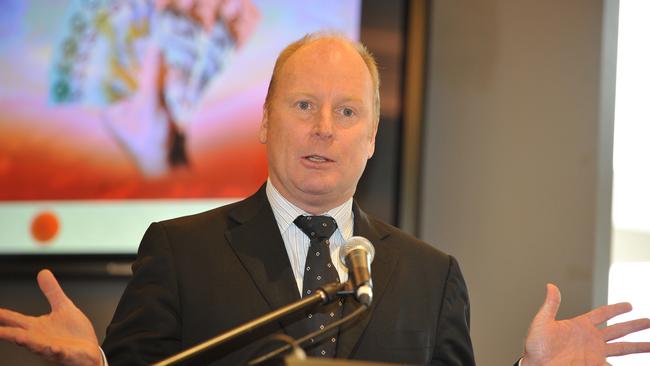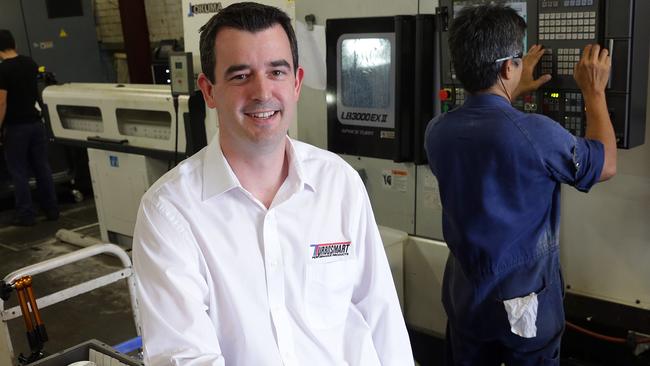Look before you leap ... into a Chinese prison cell
FOR many small businesses, the quandary is: where do I start? Small organisations might dream of moving overseas, but are intimidated.

THE economic conditions are right in the favour of Australian companies: interest rates are down; the dollar is close to six-and-a-half-year lows; fuel prices are down; we have signed free trade agreements with a range of large and fast-growing economies. It makes sense that business large and small should be seeking opportunities overseas.
But for many small businesses, the quandary is: where do I start? Small organisations with a unique product or service might dream of moving overseas, but are intimidated by the first unknown steps overseas.
And it is reasonable to be cautious. Andrew Hudson, a director of the Export Council of Australia and a corporate adviser at law firm Gadens, said there are many occasions when he is approached after small and medium-sized businesses have ventured overseas on their own on the back of internet research alone.
“I have had calls from Australian clients in Chinese police stations telling me they have been thrown out of their premises for operating in the wrong building. They say they are being told to get out of the country. I tell them to get out. It’s illegal to operate out of a building that belongs to the Communist Party.”
It doesn’t stop there. He cites the example of naive companies that use freight forwarders they encounter over the internet only to discover, once the goods have been delivered, they are asked for more and more money to finalise the delivery. “They are effectively being asked to pay a bribe,” Mr Hudson said.
“There are a lot of dangers out there — that’s why we’re trying to give people the tools to make better decisions.’’
Another reason the Export Council is getting involved is to break down the complexity attached to the free trade agreements, which is seen as a barrier for small business — especially — taking the leap of faith into foreign markets. New websites are being developed so individual business operators can find the safest means of establishing overseas connections.
“It’s easy to talk about the economic benefits of free trade agreements,” Mr Hudson said. “Large companies are OK because they are geared for export. But unless the small businesses get involved, it is a Pyrrhic victory.
“It is about taking a leap of faith. But you have to understand there are resources out there, like each of the state governments having offices overseas; there’s Austrade and the Export Council and the Export Finance Investment Corporation.”
One thing is clear, though. Trying to take advantage of the lower dollar, free trade agreements and export opportunities will not happen from your office here in Australia. The only way to trade and grow is to establish contacts and trust — and build long-term deals.
SMART IDEAS BOOST THE TURBO BUSINESS
TURBOSMART was created by CEO Nicholas Cooper 18 years ago. Today, the manufacturer of components that control turbochargers in engines sells to 50 countries around the world — and it makes all those parts from its premises in the inner west suburb of Ashfield.
The “smart” in the name of this business needs to be considered. It was clever enough to survive the global financial crisis, the rise in the dollar to US110c and the pressures of imported competition.
All the time it was focusing on its speciality — to build better parts for the emerging turbocharger industry.
General manager Stewart Mahoney says: “In the early days we would sell to New Zealand and we used that lesson to go to other countries.”

The business, which now has 22 employees, started when Nicholas Cooper’s passion for motorsports spilt over into his garage. There, his idea of creating high-quality turbocharger accessories became real and the company followed.
“We don’t really deal with mainstream car manufacturers. We are more into the enthusiast and racing markets. It’s a niche market but it has really been driven by enthusiasts.”
Now Turbosmart has offices in the US and has recently set up an office in Birmingham in the UK. And this is where the free trade agreements and the fall in the dollar is making all the difference.
“The US FTA wasn’t in when we started but it’s definitely been an improvement for us. In America the margins can sometimes be tight and any improvements in the bottom line are important.
“We always based our overseas pricing on US80c to US85c. When the dollar was worth a dollar we had to work smarter and harder. We tried to keep our overseas customers and not keep changing the price on them. It is something we absorbed, not them.”
Now that the dollar has fallen and the doors have opened Turbosmart’s idea looks very clever indeed.




